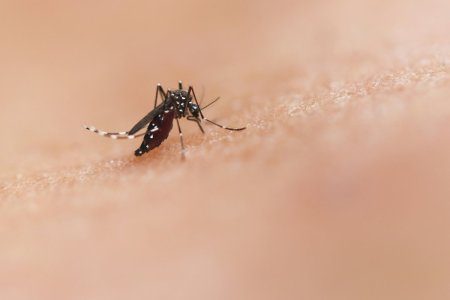Are you over 50? The CDC urges you to get this essential vaccine for your health!
By
Aubrey Razon
- Replies 0
Disclaimer: The information provided in this article is for educational purposes only and is not intended as a substitute for professional medical advice, diagnosis, or treatment. Always consult your physician or other qualified healthcare providers with any questions you may have regarding a medical condition or before making any changes to your health regimen.
Preventive healthcare is changing rapidly, and staying informed is crucial as we age. A new update from the Centers for Disease Control and Prevention (CDC) has major implications for anyone over 50.
Discover the vital vaccine change that could enhance your protection against serious illnesses!
Until recently, the CDC recommended that individuals receive their first pneumococcal vaccine at age 65.
However, the CDC's Advisory Committee on Immunization Practices (ACIP) has now voted to lower this age to 50.
This change is not just a number; it's a proactive step towards safeguarding more adults from the leading cause of pneumonia among older populations.
For Jones, and many like her who were previously ineligible for the vaccine, this update is a game-changer.
The decision to lower the recommended age is based on compelling data.
Approximately 90% of individuals between 50 and 64 have at least one health condition that increases their risk of severe disease from pneumococcus bacteria.
By expanding eligibility, the CDC aims to protect those with chronic conditions such as COPD, asthma, diabetes, and heart disease, which heighten the risk for pneumococcal pneumonia.
Moreover, this change is a stride towards addressing health disparities.
Racial and ethnic minorities, who are more likely to have these chronic conditions, will now have improved access to the vaccine.
Jones, who is also the president and CEO of the National Caucus and Center on Black Aging, emphasizes the importance of vaccine access in communities with higher risk factors.
With older adults more susceptible to severe cases, hospitalizations, and fatalities due to COVID-19, an extra dose could provide crucial protection.
As we approach the holiday season and colder months, which typically see a rise in virus transmission, staying up-to-date with COVID-19 vaccinations is more important than ever.
With only 29% of eligible patients having received the RSV vaccine, it's clear that awareness and uptake are areas that need attention.
The vaccine has shown to be 80% effective against hospitalizations for those 60 and older, making it a valuable tool in preventing severe illness.
If you're over 50 or have loved ones who are, it's time to take action:
1. Review your vaccination status and consult with your healthcare provider about receiving the pneumococcal vaccine.
2. If you're 65 or older, discuss the timing of an additional COVID-19 vaccine dose with your provider.
3. If you're eligible for the RSV vaccine and haven't received it, consider getting vaccinated to protect against this common respiratory virus.
Staying proactive with vaccinations is a critical aspect of preventive healthcare. As we age, our immune systems may not be as robust as they once were, making vaccines an essential line of defense against infectious diseases.
Let's embrace this opportunity to protect ourselves and continue enjoying life to the fullest.

Have you or someone you know been affected by pneumonia or other vaccine-preventable diseases? How do you keep track of your vaccination schedule? Share your experiences and tips in the comments below.
Preventive healthcare is changing rapidly, and staying informed is crucial as we age. A new update from the Centers for Disease Control and Prevention (CDC) has major implications for anyone over 50.
Discover the vital vaccine change that could enhance your protection against serious illnesses!
Understanding the Pneumococcal Vaccine Shift
The pneumococcal vaccine is designed to shield us from pneumococcus bacteria, notorious for causing pneumonia, meningitis, and other infections.Until recently, the CDC recommended that individuals receive their first pneumococcal vaccine at age 65.
However, the CDC's Advisory Committee on Immunization Practices (ACIP) has now voted to lower this age to 50.
This change is not just a number; it's a proactive step towards safeguarding more adults from the leading cause of pneumonia among older populations.
Why the Change Matters
Karyne Jones, a 70-year-old who suffered from pneumococcal pneumonia in 2018, knows firsthand the severity of this illness. Her recovery took three months, a testament to the bacteria's impact even after leaving the body.For Jones, and many like her who were previously ineligible for the vaccine, this update is a game-changer.
The decision to lower the recommended age is based on compelling data.
Approximately 90% of individuals between 50 and 64 have at least one health condition that increases their risk of severe disease from pneumococcus bacteria.
By expanding eligibility, the CDC aims to protect those with chronic conditions such as COPD, asthma, diabetes, and heart disease, which heighten the risk for pneumococcal pneumonia.
Moreover, this change is a stride towards addressing health disparities.
Racial and ethnic minorities, who are more likely to have these chronic conditions, will now have improved access to the vaccine.
Jones, who is also the president and CEO of the National Caucus and Center on Black Aging, emphasizes the importance of vaccine access in communities with higher risk factors.
COVID-19 Vaccine Update for Older Adults
In addition to the pneumococcal vaccine, the ACIP has recommended an additional COVID-19 vaccine for people 65 and older.With older adults more susceptible to severe cases, hospitalizations, and fatalities due to COVID-19, an extra dose could provide crucial protection.
As we approach the holiday season and colder months, which typically see a rise in virus transmission, staying up-to-date with COVID-19 vaccinations is more important than ever.
The RSV Vaccine: A Reminder for Eligible Adults
While the ACIP did not make new recommendations regarding the RSV vaccine, it's worth noting that this vaccine is still relatively new for older adults.With only 29% of eligible patients having received the RSV vaccine, it's clear that awareness and uptake are areas that need attention.
The vaccine has shown to be 80% effective against hospitalizations for those 60 and older, making it a valuable tool in preventing severe illness.
1. Review your vaccination status and consult with your healthcare provider about receiving the pneumococcal vaccine.
2. If you're 65 or older, discuss the timing of an additional COVID-19 vaccine dose with your provider.
3. If you're eligible for the RSV vaccine and haven't received it, consider getting vaccinated to protect against this common respiratory virus.
Staying proactive with vaccinations is a critical aspect of preventive healthcare. As we age, our immune systems may not be as robust as they once were, making vaccines an essential line of defense against infectious diseases.
Let's embrace this opportunity to protect ourselves and continue enjoying life to the fullest.
Key Takeaways
- A CDC panel has voted to lower the recommended age for the first pneumococcal vaccine from 65 to 50 years old.
- The panel also recommended an additional COVID-19 vaccine dose for individuals aged 65 and older for further protection.
- Vaccination coverage is important to address health disparities, particularly among racial and ethnic minority groups who are more prone to chronic conditions.
- Despite the availability of an RSV vaccine, uptake remains low, and health experts encourage eligible older adults to get vaccinated to protect against severe disease.
Last edited:







